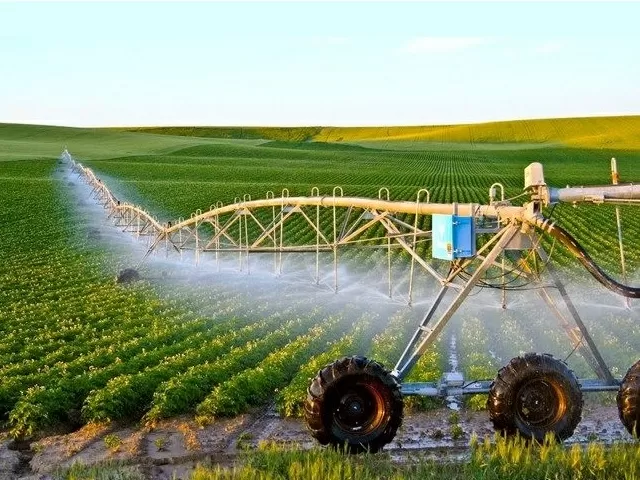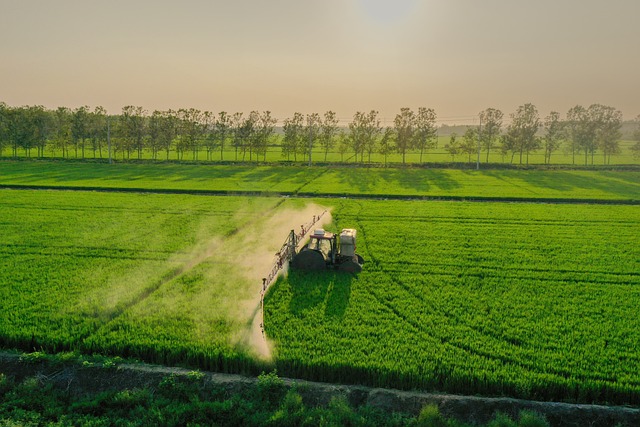Key Takeaways
-
Modern agricultural approaches offer sustainable answers to age-old farming difficulties.
-
Technological developments are important in transforming the farming sector.
-
Efficient resource management has a key role in enhancing production.
-
Integration of data-driven processes increases decision-making in agriculture.
Adopting Technological Innovations in Agriculture
In the changing context of modern agriculture, the integration of cutting-edge technology has become a cornerstone for sustainable growth. This not only helps keep soil structure but also encourages biodiversity and decreases the dangers of erosion, effectively boosting the land’s fertility over time.
The benefits of technology in agriculture extend beyond production improvements; they involve cost reductions and better operational efficiency. With GPS equipment, farmers can execute precision farming practices, ensuring each inch of farmland is utilized efficiently, hence decreasing wastage. This accuracy extends to planting and harvesting, allowing large-scale operations to be managed with less resources, ultimately contributing to a more sustainable agricultural model.
Improving Resource Management for Sustainability

In a world where natural resources are becoming increasingly scarce, sustainable resource management in agriculture is vital. Tools like the no till drill are altering the way we approach farming by avoiding soil disturbance. Innovative irrigation systems, for instance, play a key role in ensuring water is given to crops in the proper quantities at the ideal times. This eliminates water loss and guarantees that every drop properly stimulates plant development.
Moreover, adding soil health monitoring systems helps farmers to make data-informed decisions. Sensors gathering real-time data on soil conditions enable the optimum application of fertilizers, thereby avoiding chemical runoff and encouraging organic inputs. These measures guarantee that the environmental imprint of farming operations is maintained to a minimum, supporting an ecological equilibrium.
Enhancing Farm Productivity using Data-Driven Techniques
Enhancing farm production has never been more possible, owing to the breakthrough of data-driven agriculture practices. Through technology like drones and satellite photography, farmers can monitor their crops at a degree of precision previously unthinkable. This remote sensing device enables for the early detection of stress factors affecting crops, enabling fast remedial steps. Utilizing data-driven tactics in this manner helps optimize agricultural productivity while conserving important natural resources.
Integrating Internet of Things (IoT) devices further improves agricultural management by permitting real-time data collecting and analysis. IoT networks may send information on key aspects such as soil moisture, temperature, and crop development. These insights permit farmers to make precise modifications to irrigation, fertilization, and other elements of crop management, resulting to better yields and enhanced resource efficiency.
Collaborative Efforts for Knowledge Sharing
Collaboration and knowledge exchange are crucial in a continuously shifting agricultural sector. Farmers and agribusiness professionals that join in cooperative networks benefit from a platform to discuss best practices and technical breakthroughs. These collaborative initiatives reduce the isolation of working in rural regions, offering access to a greater reservoir of information.
Participating in local networks and global agricultural forums helps agriculturalists to learn from varied experiences and apply tactics proven elsewhere. This communal understanding is important in overcoming the obstacles of climatic unpredictability and market dynamics, therefore maintaining resilient agricultural practices.
Read Also: Five Ways to Help Your Yard Fireflies
Challenges and Opportunities in Modern Farming
Modern farming brings a unique mix of difficulties and opportunities. Among the challenges are the high expenses involved with sophisticated technology adoption, a barrier that can be overwhelming for small to medium-sized farms. To overcome this, financial help and supporting government policies are important. These initiatives can make new farming technology more accessible, enabling smaller enterprises benefit from technological breakthroughs.
There is a substantial change towards sustainable and ethical agricultural techniques on the opportunity front, offering new market prospects. Consumers are increasingly purchasing their food from environmentally aware farmers, supporting the development of techniques that value ecological health and production.
The Future of Agriculture
The future of agriculture is intrinsically related to its ability to adapt to rising technology and sustainable practices. As food security and environmental care concerns increase, the agriculture industry must innovate to prosper. Advanced analytics, particularly predictive modeling, offer dramatic benefits for precision agriculture.
By concentrating on technology that increase the accuracy and sustainability of farming methods, agriculture may greatly contribute to addressing global food demands. This technique boosts productivity and decreases the impact on the environment, paving the path for a sustainable future.
Conclusion: Embracing the New Era of Agriculture
The advancement of agricultural systems is necessary to fulfill the rising demands for food while guaranteeing ecological preservation. By incorporating new technology, players in the farming industry may strive towards attaining sustainability and efficiency. This new era of agriculture promotes innovation, continual learning, and teamwork.







